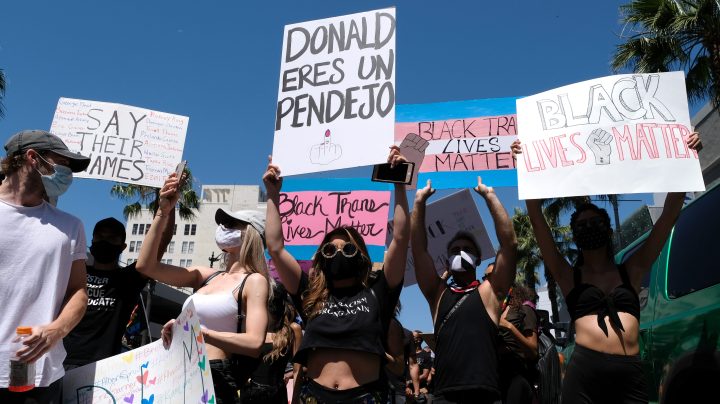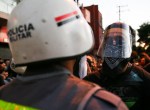The Importance & Controversy of the Recent ICE Protest in Los Angeles

Protesters march in the All Black Lives Matter Solidarity March on June 14, 2020 in Los Angeles, California. Photo by Sarah Morris/Getty Images
Earlier this week, government data showed that nearly 70,000 immigrant infants, toddlers, children and teenagers had been held in U.S. government custody over the last year—more detained children than in any other country in the world, according to the U.N. In addition to the trauma of detention and family separation, thousands of these children have also been victims of sexual abuse, with the federal government seeing a rise in abuse complaints after Trump enforced his “zero-tolerance” immigration policies.
On Sunday, hundreds of people gathered on the steps in front of Los Angeles City Hall to protest ICE enforcement and the detention of immigrant children. According to L.A. Taco, artist and activist Brownside Klever helped spur the action.
Photos from the event show people holding signs demanding that the government stop holding children in cages and pressing Trump to release about 4,000 kids who are still in federal custody. The calls to release children have become more urgent amid the coronavirus pandemic: Many of them are currently in packed shelters that might be prone to contagion.
The demonstration wasn’t without controversy. While some protesters made “Black Lives Matter” signs, critics noted that the whole event was taking attention away from the BLM movement and the current conversation about anti-Blackness and racism in the U.S. and beyond.

A Twitter user from Oaxaca also pointed out that the demonstration centered Mexican voices, despite the fact that many of the kids in custody are from Central America. “If [you’re] strongly advocating for #AbolishICE but not using that same energy for the #BlackLivesMattter Movement, then you don’t care about the kids in cages,” they wrote. “Black people are our people too!”
“I’m not saying don’t protest, we need to fight for the kids in cages as much as we need to fight for Black liberation,” the thread continued, “But if your reason is because you feel Black people are getting all the ‘attention,’ then [you’re] doing it for the wrong reasons and you need to check yourself.”
Many raised similar concerns on Klever’s IG posts. But others seemed intrigued and interested in coming together, leaving messages that asked, “When and where is the next one?”
